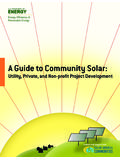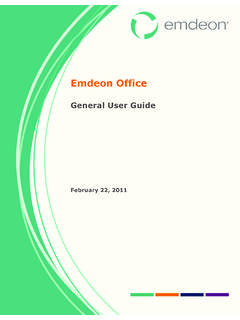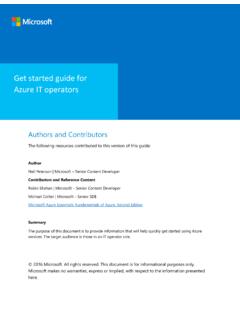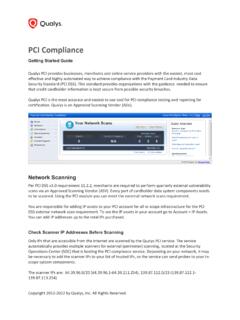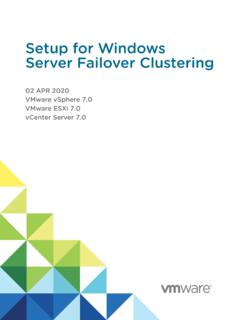Transcription of Community Festivals and Events Planning Guide
1 1 1 Community Festivals and Events Planning Guide Photo Credit: Chris Robart 2 Table of Contents INTRODUCTION .. 3 Planning a Festival or Event in Richmond Hill .. 4 HOW TO GET started .. 5 Developing the Concept .. 5 Determining Goals and Objectives .. 5 Drafting Vision and Mission Statements .. 5 Selecting an Executive Board and/or Organizing Committee .. 6 Choosing the Event Lead and Members of the Board and/or Organizing Committee .. 6 Board of Directors and Organizing Committee Executive Roles .. 7 Functional Components of Festival and Event Planning .. 7 Incorporation vs. Charitable Registration .. 9 Planning AND LOGISTICS .. 10 Target Market and Attendance .. 10 Establishing the Date .. 10 Developing and Maximizing the Theme .. 10 Determining the Location .. 10 Developing an Operating Budget .. 11 Creating a Festival or Event Timeline .. 11 Developing a Work Back Plan .. 12 Programming and Entertainment.
2 12 Scheduling .. 12 Contingency Planning .. 12 Selecting Contractors and Suppliers .. 13 Waste Management Plan .. 13 FUNDING AND SPONSORSHIP .. 14 Solicitation Letter .. 14 Sponsorship Fees & Levels of Recognition .. 15 3 MARKETING AND PROMOTIONS .. 16 Marketing Plan .. 16 Media Release vs. Media Advisory .. 16 Advertising .. 17 VOLUNTEER MANAGEMENT .. 18 Volunteer Management Plan .. 18 Developing a Volunteer Handbook .. 19 Developing a Volunteer Orientation Package .. 19 EMERGENCY 20 Emergency Action Plan .. 20 Inclement Weather Protocol .. 21 Lost Child Protocol .. 21 Risk Assessment .. 21 General Liability Insurance .. 21 EVALUATING THE FESTIVAL OR EVENT .. 22 Evaluation Report .. 22 Contains information adapted from the City of Thunder Bay s Event Planning Guide and information licensed under the Open Government Licence Alberta. 4 INTRODUCTION Richmond Hill facilitates and supports the delivery of vibrant and sustainable Festivals and Events that engage the Community in event leadership, enhance the quality of life for its residents, build Community pride and provide opportunities and places for people to connect and celebrate local culture, heritage, and talent.
3 The intent of this manual is to provide a resource to Guide organizers through the various stages involved in Planning a new festival or event. It is not meant to be a comprehensive Guide , but rather provide the basic elements to get you started . There are a myriad of resources available in print and online to facilitate the Planning process including Richmond Hill s Community Festivals & Events Resource Manual and Community Festivals & Events Planning Toolkit. Planning a Festival or Event in Richmond Hill In order to host a festival or event on municipal property, a permit must be issued. The lead-time for a permit to be issued is contingent on a number of variables including: Number of attendees Festival or event location(s) Planned activities Equipment and resource requirements Number of Town services required Depending on the size and scope of the festival or event, Organizers are required to complete and submit a Community Festivals & Events Application Form before a permit can be issued.
4 The application is required for all Festivals and Events that are grander in scale. That is, the festival or event is expected to attract more than 1,000 attendees, is open to the public, involves the use of outdoor space and impacts two or more municipal departments. In order to determine whether a Community Festivals and Events Application is required, Organizers should refer to the Festival and Event Booking Flowchart. If a Community Festivals and Events Application is required, it must be submitted by March 1 - for Festivals or Events taking place July to December of the same year or September 1 - for Festivals or Events taking place January to June of the following year. Applications can still be remitted following the deadline date, provided that the application is submitted a minimum of 90 days prior to the start of the proposed festival or event. Organizers looking to host a private event or meeting can visit the Facility Booking Page on the City s website for more information regarding facility permits or to complete the online Facility Rental Permit Form.
5 To facilitate the Planning process, Organizers are encouraged to review the Community Festivals & Events Resource Manual in its entirety as it includes pertinent information regarding requirements that are specific to Richmond Hill and links to the tools required for the delivery of a safe and successful festival or event. For more information about hosting a festival or event in Richmond Hill, please email Events Services or call 905-771-2424. Photo Credit: Chris Robart 5 HOW TO GET started Developing the Concept Moving your festival or event from initial concept to execution requires an understanding of the interests, diversity and trends of the Community . It is important to communicate with stakeholders, area residents and Community leaders about your idea and to find people who will help turn your idea into a feasible festival or event. It is important to assess your capacity to organize a festival or event; to identify the objectives of the festival or event; the potential theme; and the desired outcomes.
6 Organizers must develop a strategy to maintain and sustain the festival or event; create a timeline for the actions needed to initiate and plan the festival or event; recruit support; establish individual roles and responsibilities; determine the resources needed; and last but not least, develop tools to assess your festival or event and make the appropriate changes to carry it into the future. Determining Goals and Objectives After surveying the Community for interest, ideas and recommendations, begin to develop statements outlining what the festival or event objectives are going to be and how to achieve them. These goals and objectives may include: Strengthening Community identity and spirit Providing a venue for local artists and artisans to showcase and sell their products Creating awareness and appreciation of the culture and heritage of the Community Improving the local economy Acquainting the local and outside Community to the unique opportunities within your Community Achieving attendance targets Raising funds for a local charitable organization Celebrating significant cultural traditions Creating a tourist destination Drafting Vision and Mission Statements Take time to develop both vision and mission statements through discussion of the objectives, goals, outcomes and anticipated growth.
7 A Vision Statement outlines the ultimate goals and objectives of your festival or event (its purpose and value). A Mission Statement outlines the strategies for achieving the goals and objectives of your festival or event (measuring success). Developing vision and mission statements will help to determine the direction the festival or event is going to take. Time must be spent discussing the value of the festival or event to participants, stakeholders and the public. What benefit will be gained? What impact on the Community is expected or hoped for? In addition, Organizers must outline the tactics to be utilized to achieve their vision and fulfill the mission of the festival and event. Part of the evaluation process of the festival or event will be to review the goals and decide if the outcome of the festival or event is what was expected and if this reflects the vision and mission statements. Changes to the vision and mission statements may occur as the festival or event evolves.
8 Clarification of your vision and mission will help to: Define ultimate goals and objectives Identify the purpose Identify values Develop strategies and tactics to achieve these goals and objectives 6 Selecting an Executive Board and/or Organizing Committee Whether the festival or event is large or small, an Executive Board or Organizing Committee must be established to ensure the goals and objectives are met. Some boards deal directly with the management of the festival or event while others serve in an advisory capacity. For smaller Festivals or Events , the board may do both. Typically, executive boards of Festivals or Events such as carnivals, Festivals or sporting Events will in turn need to establish organizing Committees. The number and types of committees will depend on the complexity and size of the festival or event. As the festival or event grows, staff or volunteers may need to be recruited to assist with the operations.
9 For smaller Festivals or Events , it is common for board members to assume both board and committee work. It is important that Board and/or Committee volunteers understand the full scope of their responsibilities. Executive Boards deal more with developing policy and setting direction for volunteer committees and staff. They perform ends to be achieved functions. Working Committees are more involved with means to end functions such as operational duties and how it s done tasks. Getting the right people for the right roles is probably the most important factor in successfully developing a Board. Spending some time in the early stages of your Planning process to conduct a Board skills analysis will help identify the type of people or skills required. Try to recruit individuals who share the same philosophy, are in agreement with the goals and objectives, and have adequate time to contribute. Avoid recruiting through high-pressure tactics.
10 Choosing the Event Lead and Members of the Board and/or Organizing Committee When choosing individuals to take leadership roles for your festival or event, it is important to recruit people who have experience as well as energy and enthusiasm for the project. Some attributes to consider when choosing a leader include: Personal Qualities: Has the capacity to commit to the time requirements Has strong leadership qualities Commitment to the vision and mission of the festival or event Will act in the best interests of the festival or event Will be a good ambassador for the festival or event Works well with a team Has good communication skills Background/Skills: Committee experience Volunteer experience Festival or event Planning experience Has experience related to the roles and functions of the festival or event ( music, sports, sponsorship development, accounting, etc.) Whether the Organization becomes a not-for-profit organization with a Board of Directors or an organizing committee with sub-committees, it is important to develop a plan of action for the governing group and every member.

